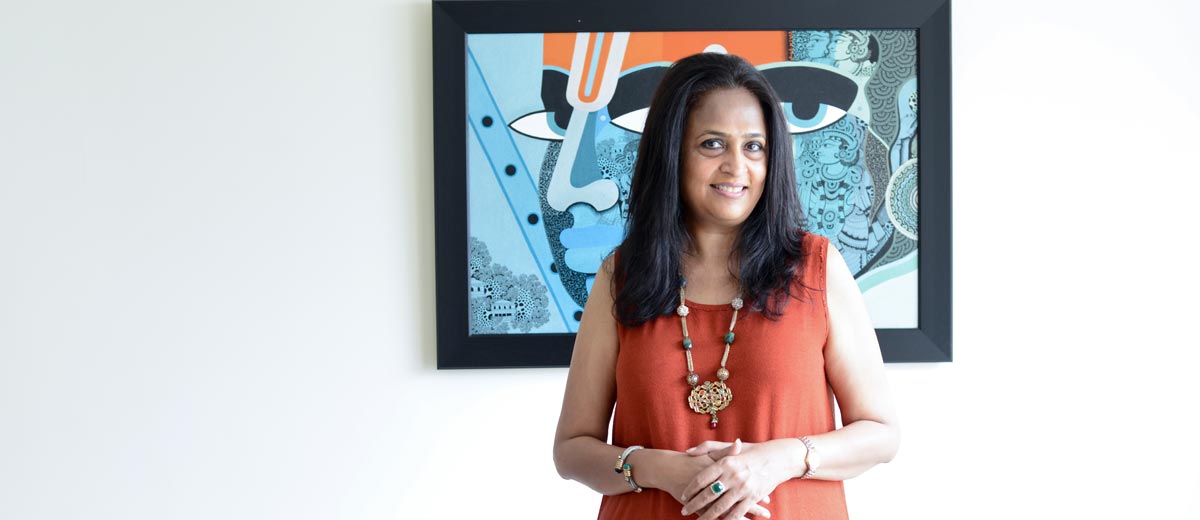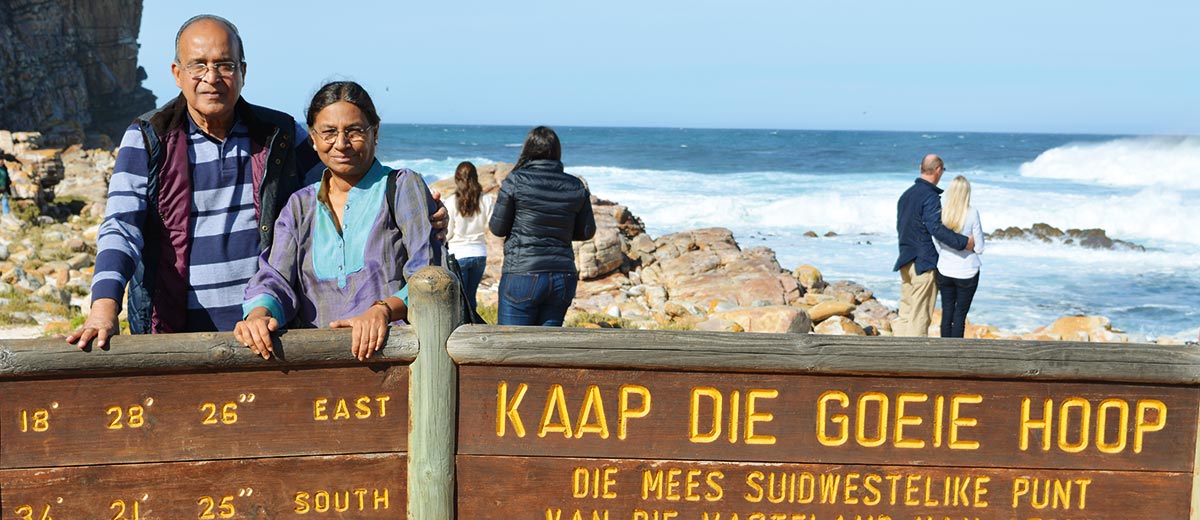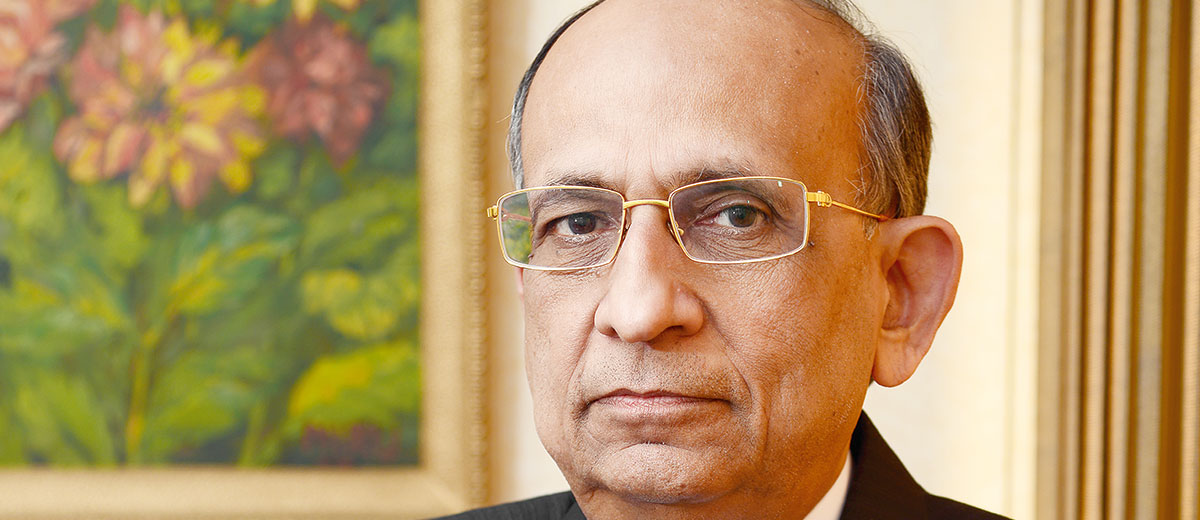 Vishal and Swati Jajodia are hand-in-glove with each other to deliver responsible medication and better healthcare, especially for diseases that are orphaned, ignored or neglected. MARWAR meets the duo to find out more about their work and life.
Vishal and Swati Jajodia are hand-in-glove with each other to deliver responsible medication and better healthcare, especially for diseases that are orphaned, ignored or neglected. MARWAR meets the duo to find out more about their work and life.
SHE WAS BORN AND BROUGHT up in a liberal atmosphere in what was then Bombay, had cut her teeth on her family textile business at the early age of 16 and was greatly influenced by the lofty ideals and principles of her grandfather, the late Prahlad Rai Poddar.
He, a few months younger to her, was pursuing BCom and came from a far more traditional Marwari family that had its roots in Calcutta (now Kolkata) and had moved to Bombay (now Mumbai) when his father, the late Narayan Prasad Jajodia ventured into pharmaceutical trading and distribution.
Seemingly, the two came from very different worlds. Yet, when a young Swati Poddar met a younger Vishal Jajodia, some kind of chemistry struck between them that was strong enough for the two to accept each other as life partners within three months of introduction.
The chemistry that took root in 1994 is still going strong for the couple in more ways than one. Swati and Vishal Jajodia together run Swati Spentose Pvt Ltd, a pharmaceutical company headquartered in Mumbai. The couple deals with orphaned, neglected and ignored diseases and is passionate about responsible medication.
Swati Spentose, which is today well on track to hit the R50crore mark, started off as a supplier to top Indian pharmaceutical companies, including Sun Pharma, Lupin, Microlabs, Cipla, Elder Pharma, Ranbaxy and others. However, when Vishal had entered the business and taken over the reins around 1996, he had begun to focus on altering the core of the firm from being a trading house to an R&D-led, manufacturing outfit.
“Though I was a commerce graduate, I was fascinated with science,” Vishal explains. “I had begun to realise that distribution would have its limitations and, therefore, took my first steps towards manufacturing by setting up Alcon Biosciences in Vapi, Gujarat, as well as a research laboratory in Kandivali, Mumbai.” These two projects left Vishal with expansive and incisive insights and a deep knowledge of genomics as well as bio-informatics. Vishal also happened to serve as the youngest board member of the Chemical Export Promotion Council or CHEMEXIL IN 1994, as well as in other important bodies such as the Indian Drug Manufacturers’ Association (IDMA).
While Vishal was neck-deep in his work reaserching a molecule called Alendronate Sodium, the couple had their first child (in 1997), a girl whom they named Adya. Swati was happy to have become a mother, but sorely missed being a working woman, something that she was used to in her pre-marital days. Defiantly, she joined forces with her husband, who needed a set of trusted and dedicated hands. “My first love, believe it or not, was work. Business ran in my blood, so whether it was textiles or drugs, I could adapt quickly,” she says. Swati had her first brush with drugs and research when she lost her mentor and grandfather, Prahlad Poddar, to bone cancer when she was 18. “Though we tried to provide the best of care and doctors, we simply could not understand what was going on and lost him within one year. Even at that point in time, my grandfather had told me that I must learn to decipher the drugs and understand the medication,” she recalls painfully. The experience stayed with her, giving her further impetus to join forces with her husband.
 By 1998 the two started developing the molecule, Pentosan Polysulfate Sodium (PPS) (even their company is part named after this molecule). Vishal patiently explains that this was done with the intention of serving ‘Orphan Diseases’, which are diseases that are rare in nature and, therefore, the number
By 1998 the two started developing the molecule, Pentosan Polysulfate Sodium (PPS) (even their company is part named after this molecule). Vishal patiently explains that this was done with the intention of serving ‘Orphan Diseases’, which are diseases that are rare in nature and, therefore, the number
of patients are low, making the drug fairly unprofitable.
However, the Jajodias—who had by now come to feel quite strongly about the difference that medicine should make in peoples’ lives—went on with the research and launched the world’s first generic PPS for Interstitial Cystitis (IC). Interstitial Cystitis is a condition where the patient suffers greatly because of a shrunken bladder, leading to acute discomfort and frequent urination.
As their work grew, Vishal felt the need to expand his work force as well. One fine day, he bumped into his Hindi teacher from school near Churchgate in Mumbai. His teacher, Om Prakash Rai, lamented as to how his son was in need of work and was currently working at a petrol pump. Vishal offered the man, Danesh Rai, a job in the logistics department of his organisation. A stickler for rules and integrity, Vishal today employs more than a hundred people from his teacher’s village in Uttar Pradesh—for he believes that they not only work harder but are far more diligent when it comes to following the norms and rules of the world of drug research and delivery.
 Swati Spentose went on to receive an FDA (Food & Drug Approval) and launched their finished dosage in India. It was made available at a cost of R5,500 per month for 90 capsules, as against the American alternative which dominated the market and was available in India at roughly R70,000 per month. But they have to continuously deal with doctors and urologists who are used to prescribing surgery for this condition. They also launched their own brand called ‘Comfora’ in India in 2010, which is now also available in Korea, UK, Columbia and Spain and USA. “It is really a home grown product with a wood extract using ultra filtration and a gag layer inside the bladder,” Swati reveals.
Swati Spentose went on to receive an FDA (Food & Drug Approval) and launched their finished dosage in India. It was made available at a cost of R5,500 per month for 90 capsules, as against the American alternative which dominated the market and was available in India at roughly R70,000 per month. But they have to continuously deal with doctors and urologists who are used to prescribing surgery for this condition. They also launched their own brand called ‘Comfora’ in India in 2010, which is now also available in Korea, UK, Columbia and Spain and USA. “It is really a home grown product with a wood extract using ultra filtration and a gag layer inside the bladder,” Swati reveals.
Besides IC, they have also been championing mucopolysaccharidosis, which is the inflammation of the bones that leads to dwarfism. They have led the initiative by sponsoring their medicine for research at the prestigious Mt Sinai Hospital in New York. They are also working on the problem of varicose veins, which is usually treated only cosmetically. In all these pursuits, the Jajodias have tied-up with the best scientists and clinicians from India and abroad. They include experts from Canada, Switzerland and USA.
Both Vishal and Swati are passionate and determined about the fact that they are not merely in the business of medication but are also quite clearly at the heart of it. “Even paracetemol makes money. That is not what we want to do,” states Swati. She has also been seriously advocating the need for responsible medication. It’s an initiative where she helps care givers in the family understand the medication and communicate with the doctor better for the greater well-being of the patient. Their unit in Vapi ranks number one in terms of environmental compliance, out of the 725 units present there.
Despite all this, the couple thinks better of resting on their laurels. Their current and future pursuits include creating greater awareness for diabetes, a disease that is considered to be a silent killer. They are currently in the process of sending their diabetes drug for clinical trials. They are also trying to tackle diseases related to the brain, wherein the major challenge lies in the ability to create a carrier whereby the drugs may reach the brain. “The brain has a protective layer, so we are trying to create vehicles to aid drug delivery to the brain,” they explain.
As for the obvious question ‘how difficult it is to be continuously working and chasing life’s goals with your spouse, both at work and outside it’ the Jajodias have their official roles mapped out very clearly. While legal and marketing matters are taken care of by Swati, Vishal looks after operations and finance. “Even if we have a difference of opinion, we have complete trust in each other and our egos do not come in the way. On any typical working day, we have our lunch together and iron out issues, if any,” explains the duo, almost in unison. Clearly, their chemistry is crackling.










